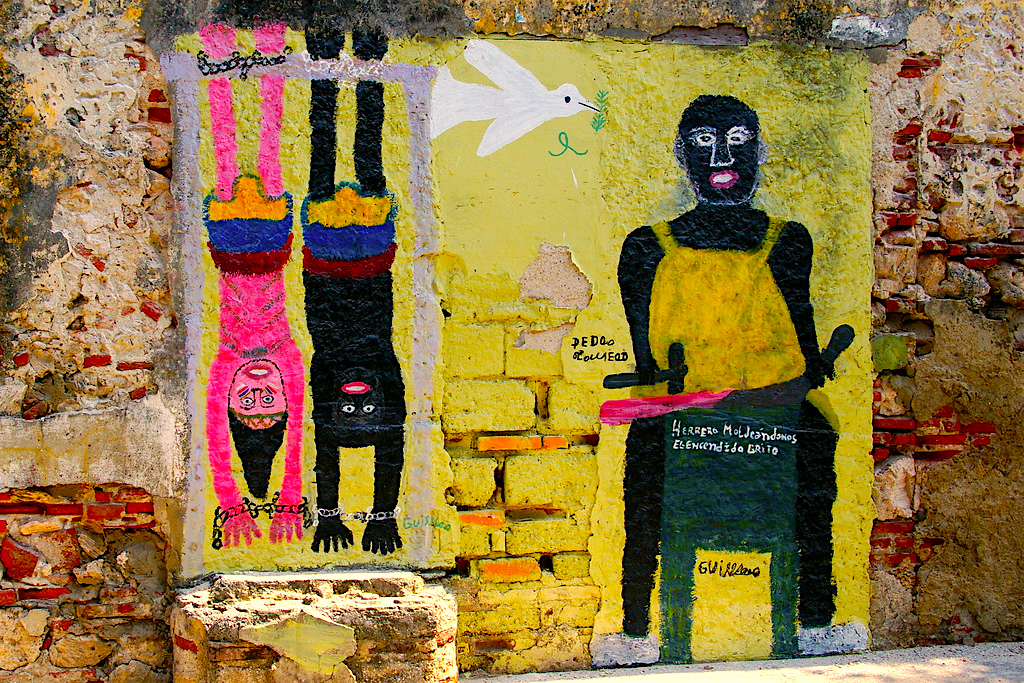Global Exit Right: Brexit Signals the Latest Travel Trend

In 2012, when I was ordered out of Mexico for over-extending a student visa, I took a quick trip to Guatemala, flashed my United States of America passport at a guard, paid a one-peso fee, and clacked through a turnstile. In the shadow of the bridge I had just walked over, inner tube rafts loaded with goods and people were ferrying across the river. Some of those people were migrants, heading north. This disparity—the white boy strolling south without a worry, the brown folks heading north with all the worry in the world—is one of the largest moral failings of our time.
As migrant bodies wash ashore on Greek tourist beaches (one of many poignant current examples of brutal global inequalities) wealthier nations increasingly want to save mobility for themselves. The Brexit vote embodied not only xenophobia, as many have pointed out, but also the phobia’s corollary: extreme selfishness. Even as the United Kingdom severed binding ties to the European Union, most Britons are still relatively wealthy “first-world” citizens who, faced with the possible imposition of new nagging travel restrictions, will likely be able to overcome them. However, the status of Romanians and Poles in Britain, among other immigrants, is worryingly precarious.
The truth is that there are more border walls today than were standing during the height of the Cold War, and wall construction is picking up pace. According to UC Berkeley scholars Ron E. Hassner and Jason Wittenberg, of the 45 borders that have been built since 1945, 34 of them were erected after 1990, after the fall of the Berlin Wall. This increased barrier construction has been coupled with another phenomenon: there are more displaced people today—one out of every 113 of us—than there were after World War II. Taken together, more humans today are running into (or being backed against) more walls than perhaps any time in history.
Fear of poverty and fear of terror are typically what most impel states to build border walls. According to Hassner and Wittenberg, states that fortify borders are on average about four times as wealthy (per capita) as their neighbor states. The U.S., for example, is about five times more wealthy than Mexico, and Israel is about 22 times more wealthy than Palestine, to name two nation-pairs divided, at least in part, by militarized borders. Though Hassner and Wittenberg explain that states also “frequently cite fears of terrorism to justify building walls,” they find no evidence that states that build borders have experienced a disproportionate number of terrorist attacks.
The successful Brexit vote highlights both of these fears—of poverty and of terror. Indeed, anti-immigrant sentiment surged after the vote, with hate crimes against minority groups spiking. The manifested nationalism not only denies a history of the British violently exploiting much of the world to build their current wealth, but that, like the Americans, their economy depends on immigration. And yet, like the Swiss—whose conservative party backed a winning referendum in 2014 to dramatically restrict immigration, despite the fact that nearly a quarter of the Swiss population is foreign born, and major Swiss industries rely heavily on immigrant labor—Britons voted to cut off the nose to spite the face, restricting their own mobility, impinging upon diversity and a culture of openness, and taking a cut at their own economy (the pound dropped 11 percent in the days following the vote), in order to keep out immigrants.
Numerous studies have shown that increased migration, and certainly increased tourism, benefits national economies. The IMF forecasted a modest increase in GDP growth in Austria, Germany, and Sweden from the recent surge in migration from Africa and the Middle East, coming mainly from increased fiscal spending and potential growth in the labor market. In the U.S., immigration has an overall positive impact on the economy, increasing tax revenue, and adding jobs. A report from the Migration Policy Institute explained that “immigration unambiguously improves employment, productivity, and income.” What, then, is driving increased immigration and travel restrictions, the new or proposed walls in Macedonia, Hungary, India, Morocco, and the United States, as well as the new political walls enisling the U.K. and Switzerland?
Racism has been a catalyst for immigration restriction for centuries—think White Australia in the late-19th through the mid-20th century, Operation Wetback in the U.S. in 1954, or, today, Donald Trump and Marine Le Pen’s boisterously racist anti-immigrant rhetoric. In other cases, it’s about reciprocity, and the lack thereof: if you won’t let me in, then I won’t let you in. While the U.S. lets most EU passport holders into the states through its visa waiver program, citizens from some eastern European states, like Poland and Romania, have to go through a lengthy and uncertain visa application process if they want to come to the U.S. Only in 2015 did the rejection rate for Romanians applying for U.S. visas drop below 10 percent for the first time. In 2012, according to Romanian Insider, the rejection rate was over 20 percent. For Guatemalans, meanwhile, the 2012 rejection rate was over 30 percent (the same year I strolled into the country). In 2015, the rejection rate for Guatemalans rose to over 45 percent. In none of these countries do U.S. citizens need a visa for entry. This disparity led the European Commission in April to propose new restrictions on visa-free travel for Americans and Canadians, although the measures are unlikely to be implemented.
Today it is the German passport that has the most cachet; Germans can travel visa-free to 157 countries. Americans can do the same to 154 countries, with its passport ranking 18th worldwide, behind South Korea, Finland, and Spain. The countries with the most visa-free or visa-on-arrival travel privileges, however, are also some of the most restrictive. Germany allows the citizens of only 84 countries to enter visa-free or with a visa on arrival, placing it 53rd on the Welcoming Countries Rank, according to the Passport Index. Citizens from a mere 38 countries can currently visit the U.S. through its Visa Waiver Program. From neighboring Mexico, for example, citizens need visas and passports, or at least a border crossing card, which costs $160 dollars and needs to be applied for at an embassy—a potentially lengthy, and by no means assured, process. And yet Americans travel to Mexico more than to any other international destination. Nearly 40 percent of Americans’ trips abroad in 2015 were to Mexico, and total trade between the two countries the same year was over $500 billion dollars.
These statistics belie an ugly truth: at the same time that the rich are increasingly mobile, they are steadily restricting the mobility of others. In a recent North American summit, President Obama hypocritically condemned the isolationist stance taken by Britain (and exuberantly espoused by Donald Trump) saying that to “pull up the drawbridge around us is going to be bad for us.” Meanwhile, his administration has deported well over 2 million people, reigning over a dramatic increase in border security infrastructure (effectively lifting his “drawbridge” for many) and even spurring Mexico to help keep Central Americans from traveling northbound towards the U.S. This paradox is telling, and has been standard policy across the globe for decades: free passes for some, walls for others.
John Washington is a translator and writer currently based in Arizona. Find more of his work at www.jblackburnwashington.com

